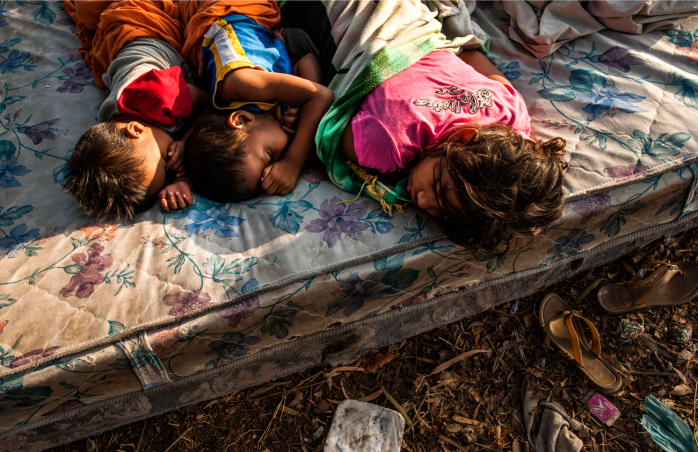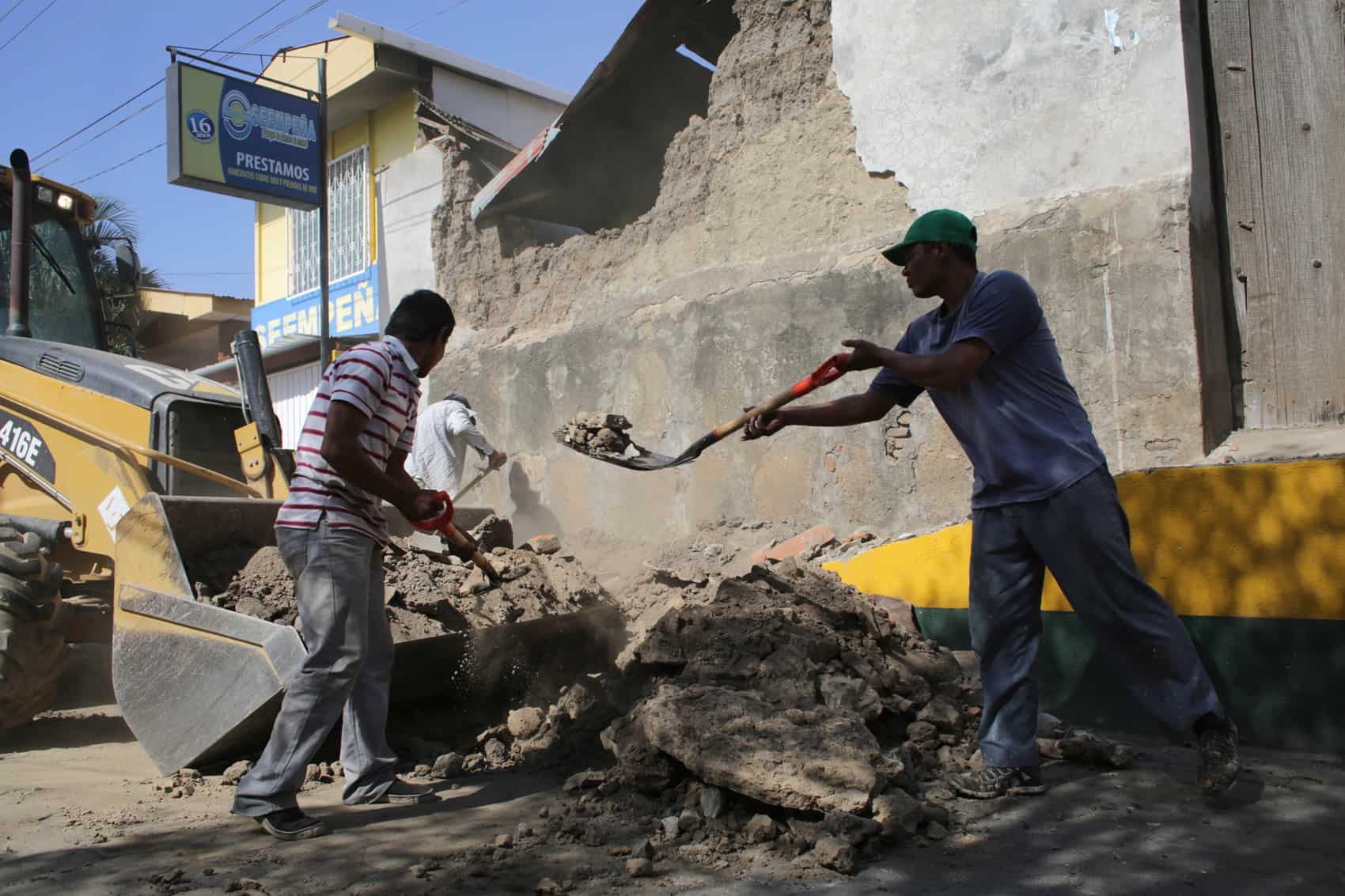MANAGUA, Nicaragua — Nicaraguans awoke in a panic Monday morning when a magnitude-5.6 earthquake shook the capital following quakes last week that killed one, injured almost 40 and left another 2,000 with partially or totally destroyed homes.
The earthquake Monday was felt at 11:07 p.m. with the epicenter 1 kilometer from the Apoyeque volcano on the shores of Lake Managua. There were no reports of injuries, according to the Nicaraguan Institute of Territorial Studies (Ineter).
The temblor, which had two aftershocks of moderate intensity and was preceded by one registering 4.9 and 40 others of lesser magnitude during the day, destroyed at least seven homes and caused great alarm, according to reports broadcasted by the state-run Radio Ya.
Some of the capital’s 1.5 million inhabitants slept in the street or with the doors of their home open, fearful of another large seismic shock. Older residents would remember the the quake that destroyed Managua in 1972 and left more than 10,000 dead and many never found.
Areas across the Central American country have felt the strong shocks originating at a shallow depth, including Managua, the departments of León, Granada, Boaco, the Pacific coast, and the areas surrounding the Momotombo and Apoyeque volcanoes. The stronger quakes also have been felt in other countries in Central America, including Costa Rica.
Authorities continue to maintain the red alert they declared after a quake registered a magnitude-6.2 on Thursday.
More than 1,000 aftershocks of lesser magnitudes have followed, decreasing their intensity Saturday only to increase in strength again Sunday.
“We’re obligated to raise the security measures to the highest possible out of responsibility to our people, children, families,” said Nicaraguan President Daniel Ortega Monday morning.

Not dropping their guard
The government planned to begin reconstruction in 17 cities affected by the two quakes on Thursday and Friday, half of which are near Lake Managua, said first lady and government spokeswoman, Rosario Murillo.
The government plans to repair the damage and assist those affected, whose number has yet to be tallied, with its own resources, the cooperation of allies like Venezuela, which has sent a plane loaded with food, medicine and blankets, Ecuador, and a private Nicaraguan company.
Ineter experts and the government believe that the seismic danger has not passed and that the population should not let its guard down.
“We have to remain vigilant of the signs” that the government “has given us as to not mourn (more) casualties,” said Cardinal Leopoldo Brenes to thousands of followers during a procession in Managua to start the Holy Week celebrations.
Murillo summed the casualties and damage as one dead, 38 injured, along with 2,354 homes partially or totally damaged, and more than 700 buildings cracked, including several hospitals, in 17 municipalities in the departments of Managua, León, Granada, Carazo, Madriz and Boaco.
Assistance will be concentrated principally in the most affected cities of Nagarote, Mateare and Managua, along the shores of Lake Managua.
Lake Managua, a latent threat
Experts believe that the two strongest earthquakes could have “activated the faults beneath the city of Managua,” warned Murillo.
“We’re directing the inhabitants of Managua to step up security measures starting tonight (Sunday). We suggest that they sleep with their doors open,” she said with the director of the National Mitigation and Disaster System (Sinapred), Guillermo González, at her side during a press conference.
According to Ineter, 16 active fault lines run underneath Managua that meet in Lake Managua. The capital, which was also destroyed by a quake in 1931, is surrounded by “dozens of volcanic centers of different grades and activity.”
“We’re full of lakes, lagoons, volcanoes and threatened by faults. It’s part of our life that we have to recognize as a reality and prepare ourselves,” said Murillo.
Lake Managua was the origin of the 1972 earthquake that destroyed Managua. Founders established the city in 1819 on soft volcanic soil near the lake and declared it the capital of Nicaragua 33 years later.








